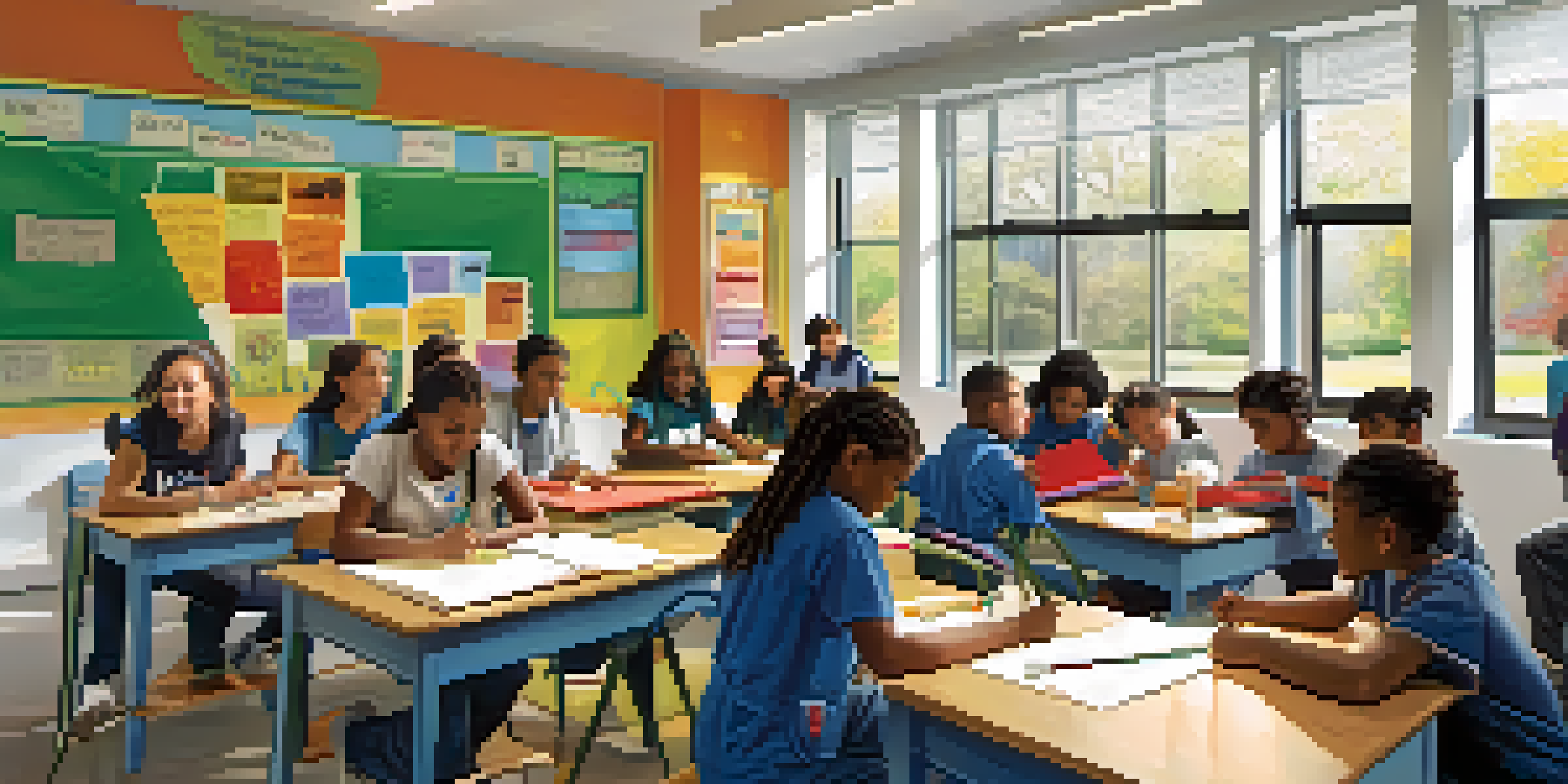The Role of Civic Responsibility in Educational Practices

Understanding Civic Responsibility in Education
Civic responsibility refers to the duties and obligations individuals have to their community and society at large. In an educational context, this concept encourages students to engage with their surroundings and contribute positively. By integrating civic responsibility into educational practices, schools can foster a sense of belonging and accountability among students.
The Impact of Civic Responsibility on Student Engagement
When students understand their civic duties, they are more likely to participate in school and community activities. This engagement can lead to a more vibrant school culture where students feel empowered to voice their opinions and take action. For example, organizing community service projects can ignite a passion for social issues among students.
Civic Responsibility Boosts Engagement
Encouraging students to understand their civic duties fosters greater participation in school and community activities.
Civic Responsibility and Critical Thinking Skills
Teaching civic responsibility encourages students to think critically about societal issues. It invites them to analyze different perspectives and understand the complexities of community challenges. By discussing topics such as local governance or social justice, educators can help students develop essential skills for informed citizenship.
Integrating Civic Responsibility into Curriculum Design
Incorporating civic responsibility into the curriculum can take many forms, from service-learning projects to debates on current events. Educators can design lessons that connect academic content with real-world issues, making learning more relevant and impactful. This approach not only enriches the educational experience but also prepares students for active citizenship.
Curriculum Enhances Civic Skills
Integrating civic responsibility into the curriculum helps students connect academic content with real-world issues.
The Role of Teachers in Promoting Civic Responsibility
Teachers play a crucial role in instilling civic values in their students. By modeling civic engagement and encouraging open discussions, they can inspire students to take an interest in their communities. Additionally, teachers can provide resources and opportunities for students to learn about civic rights and responsibilities.
Community Partnerships and Civic Engagement
Schools can enhance civic responsibility by partnering with local organizations and community leaders. These collaborations can provide students with real-world experiences and insights into civic engagement. For instance, internships or volunteer opportunities allow students to apply their learning while contributing to their communities.
Teachers Inspire Civic Values
By modeling civic engagement, teachers play a vital role in instilling a sense of civic responsibility in their students.
Measuring the Impact of Civic Responsibility in Education
Assessing the effectiveness of civic responsibility initiatives can be challenging but is essential for continuous improvement. Schools can utilize surveys, reflections, and community feedback to evaluate student engagement and outcomes. This data can help educators refine their approaches and ensure that civic education remains relevant and impactful.
The Future of Civic Responsibility in Education
As society evolves, the concept of civic responsibility in education will also need to adapt. Emerging issues such as digital citizenship and global citizenship are reshaping what it means to be a responsible community member. By staying attuned to these changes, educators can prepare students for the complexities of modern civic life.